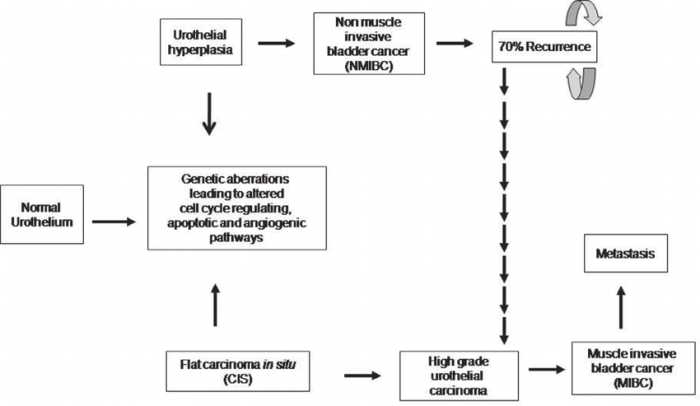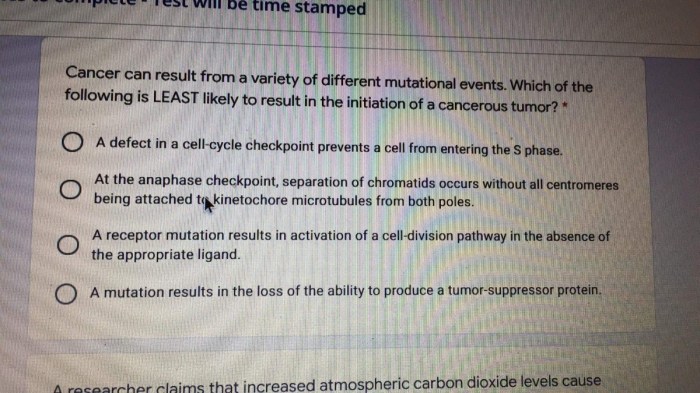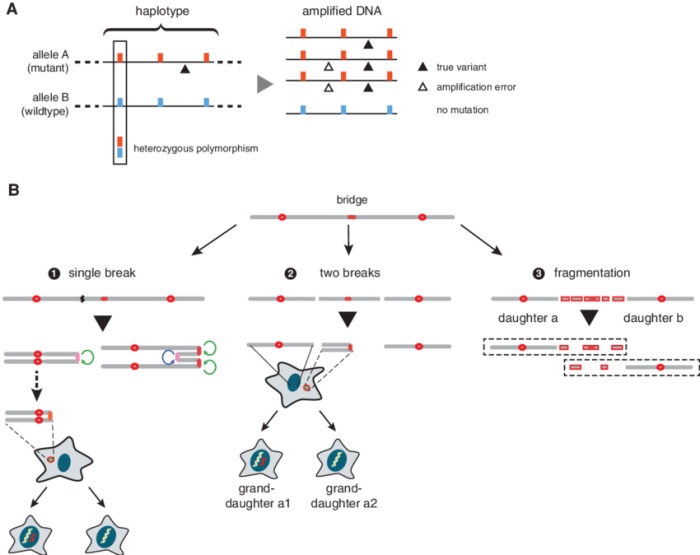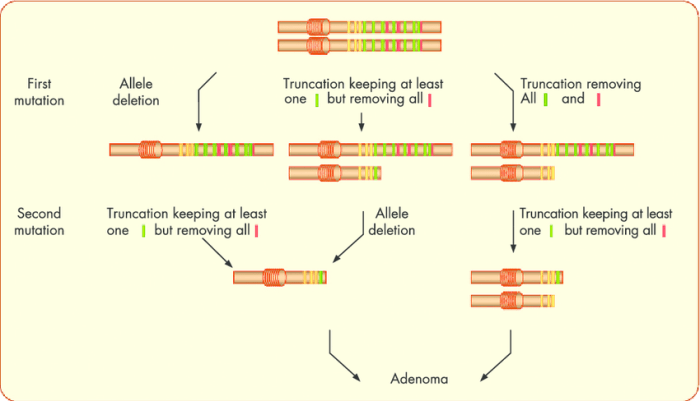Cancer can result from a variety of different mutational events, a complex and dynamic process that drives the uncontrolled growth and proliferation of cells. Understanding the nature and consequences of these mutations is crucial for unraveling the intricate mechanisms underlying cancer development and devising effective therapeutic strategies.
From point mutations to chromosomal rearrangements, the spectrum of mutational events in cancer is vast and multifaceted. Environmental factors, such as exposure to carcinogens, can induce DNA damage and contribute to the accumulation of mutations. These alterations can disrupt the normal function of genes, leading to the activation of oncogenes or the inactivation of tumor suppressor genes, ultimately promoting cancer initiation and progression.
1. Mutational Events in Cancer Development

Mutational events are changes in the DNA sequence that can contribute to the development of cancer. These events can occur spontaneously or be induced by environmental factors, such as exposure to carcinogens.
Types of Mutational Events
- Point mutations: Changes in a single nucleotide base pair.
- Insertions: Addition of new DNA sequences into the genome.
- Deletions: Removal of DNA sequences from the genome.
- Chromosomal rearrangements: Changes in the structure or number of chromosomes.
Role of Environmental Factors
Environmental factors, such as exposure to ultraviolet radiation, tobacco smoke, and certain chemicals, can damage DNA and increase the risk of mutational events.
2. Mechanisms of Carcinogenesis
Mutational events can lead to cancer development through a series of molecular and cellular mechanisms.
Oncogenes and Tumor Suppressor Genes
Oncogenes are genes that promote cell growth and proliferation, while tumor suppressor genes inhibit these processes. Mutations that activate oncogenes or inactivate tumor suppressor genes can disrupt normal cell cycle regulation and lead to cancer.
Clonal Evolution, Cancer can result from a variety of different mutational events
Cancer cells undergo clonal evolution, a process in which they acquire additional mutations that confer selective advantages. This can lead to the development of more aggressive and resistant cancer cells.
3. Types of Mutations: Cancer Can Result From A Variety Of Different Mutational Events

Various types of mutations can occur in cancer cells, each with different effects on gene function and cellular behavior.
Point Mutations
Point mutations involve changes in a single nucleotide base pair, which can lead to amino acid substitutions or premature stop codons.
Insertions and Deletions
Insertions and deletions add or remove DNA sequences, respectively, which can disrupt gene structure and function.
Chromosomal Rearrangements
Chromosomal rearrangements involve changes in the structure or number of chromosomes, such as translocations, inversions, and deletions.
4. Genomic Instability

Genomic instability is a condition in which the genome is prone to mutations and chromosomal rearrangements.
Mechanisms of Genomic Instability
Genomic instability can be caused by defects in DNA repair mechanisms, telomere shortening, and other factors.
Consequences of Genomic Instability
Genomic instability can accelerate cancer progression and increase resistance to treatment.
5. Implications for Cancer Treatment

Understanding mutational events has significant implications for cancer treatment.
Targeted Therapies
Targeted therapies are drugs that specifically target mutations found in cancer cells, providing more effective and personalized treatment options.
Genetic Testing
Genetic testing can identify patients who have mutations that make them more likely to respond to certain treatments.
Questions Often Asked
What are the most common types of mutations in cancer?
Point mutations, insertions, deletions, and chromosomal rearrangements are among the most frequently observed types of mutations in cancer.
How do environmental factors contribute to cancer development?
Exposure to carcinogens, such as tobacco smoke, ultraviolet radiation, and certain chemicals, can induce DNA damage and increase the risk of cancer.
What is the role of genomic instability in cancer?
Genomic instability refers to an increased rate of mutations and chromosomal aberrations, which can contribute to cancer development and progression by promoting the accumulation of oncogenic mutations.